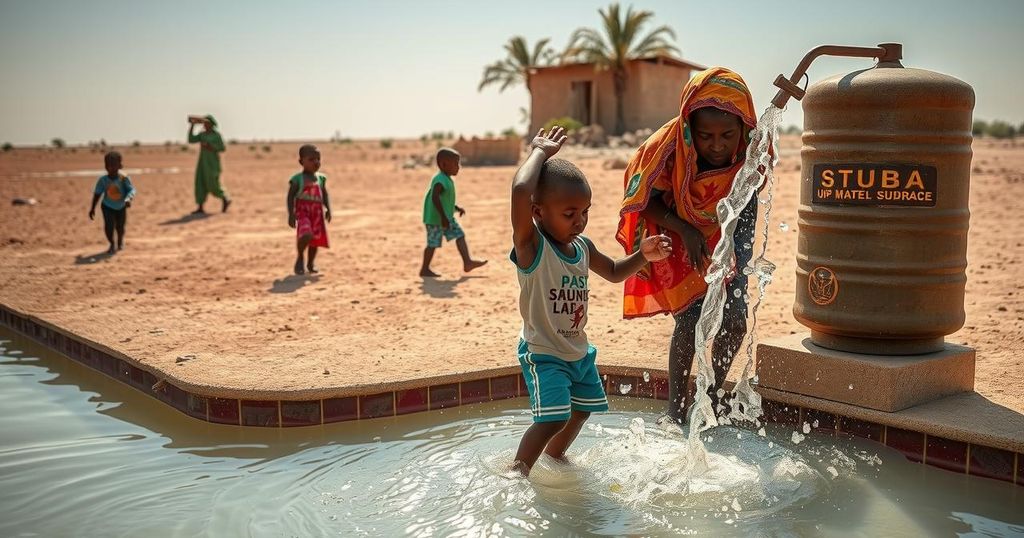Sudanese refugees in Chad’s Tanqori camp, displaced from West Darfur, face a critical water shortage, receiving only 16 liters per day. This scarcity forces them to use contaminated sources, leading to health issues. The UNHCR highlights the urgent need for assistance as tensions rise between refugees and local communities due to resource strain. Immediate humanitarian aid is crucial to alleviate their suffering.
In the Tanqori refugee camp in eastern Chad, Aisha Adam Ishaq and fellow Sudanese refugees face severe hardships exacerbated by an acute water crisis. Having fled the violence of El Geneina in West Darfur, Ishaq now receives only 16 liters of water per day, compelling her to resort to unsafe and contaminated sources. The recent transfer of refugees from the more accessible Adri camp to the isolated Tanqori has triggered further suffering, as they find themselves in a location poorly equipped to meet their basic needs. Reports of disputes between the refugee populations and the local community, fueled by scarcities of water, have emerged as international aid organizations remain largely absent. The weight of the crisis has forced many women to journey perilously to fetch water, leaving them vulnerable to various health risks, particularly for their children. They are pleading for basic essentials as winter sets in, indicating that additional support is urgently needed. The situation, described as critical by the UNHCR, reflects the ongoing humanitarian challenges faced by approximately 600,000 Sudanese refugees residing in Chad after fleeing conflicts since 2003.
The ongoing water crisis confronting Sudanese refugees in Chad is rooted in the conflicts that have persisted in Sudan since at least 2003. The Darfur conflict initially displaced thousands of individuals, a situation that has been aggravated by the recent eruption of violence between the Sudanese army and the Rapid Support Forces. As such, the influx of refugees has continued to exert pressure on Chad’s scarce resources, particularly in remote camps like Tanqori, established in response to local tensions and humanitarian needs. This context of instability and resource scarcity has led to a dire situation for the refugees, particularly regarding access to clean water, essential for their survival.
The plight of Sudanese refugees in the Tanqori camp starkly illustrates the challenges posed by water scarcity amid ongoing conflict and instability. As they face dire conditions with insufficient access to clean drinking water, the refugees are calling for urgent assistance to mitigate their suffering. It is crucial that humanitarian agencies respond effectively to alleviate the deprivation experienced by these vulnerable displaced populations, ensuring they have access to life-sustaining resources. Without immediate intervention, the health and wellbeing of thousands remain at significant risk.
Original Source: sudantribune.com






